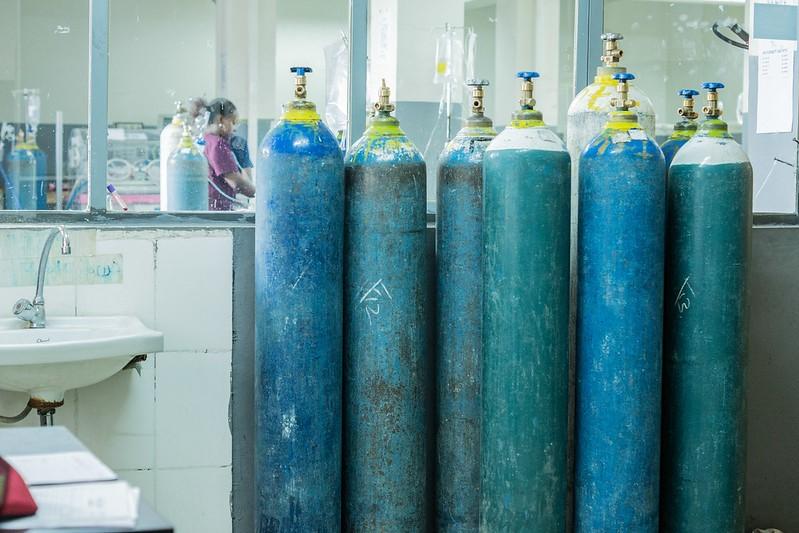Medical oxygen supplies are "dangerously low" in Ukraine owing to the Russian invasion, World Health Organization (WHO) officials said yesterday in a statement.
WHO Director-General Tedros Adhanom Ghebreyesus, PhD, and Hans Henri Kluge, MD, MPH, head of the WHO European regional office, said that trucks can't transport oxygen supplies from plants to hospitals in Ukraine, including the capital, Kyiv. Some hospitals, they said, have already run out of oxygen, while most others were anticipating depletion within 24 hours, putting thousands of lives at risk.
The invasion, ordered by Russian President Vladimir Putin, is now in its fifth day.
"During the crisis in Ukraine, health must remain a priority pillar of the humanitarian response, with health systems and facilities remaining protected, functional, safe and accessible to all who need essential medical services, and health workers protected so they can continue to save lives," they said.
Tedros and Kluge said oxygen supplies are necessary for the country's 1,700 hospitalized COVID-19 patients and other critically ill patients who have complications of pregnancy, childbirth, chronic conditions, sepsis, injuries, and trauma.
They added that another factor in the shortage is a scarcity of zeolite, a mainly imported chemical product needed to produce safe oxygen. Safe delivery of zeolite from outside Ukraine to the manufacturing facilities must be facilitated, they said.
"Compounding the risk to patients, critical hospital services are also being jeopardized by electricity and power shortages, and ambulances transporting patients are in danger of getting caught in the crossfire," the statement said.
Oxygen, trauma supplies desperately needed
The WHO is working with its partners to safely transport oxygen and trauma treatment supplies through Poland, assuming a 20% to 25% increased need for oxygen over that required before the crisis.
"To achieve this, WHO is actively looking at solutions to increase supplies that likely would include the importation of oxygen (liquid and cylinders) from regional networks," Tedros and Kluge said. "These supplies would need safe transit, including via a logistics corridor through Poland. It is imperative to ensure that lifesaving medical supplies—including oxygen—reach those who need them."
With WHO support, Ukraine had made substantial progress in recent years in strengthening its healthcare systems as part of a health-reform program, including the rapid scale-up of oxygen therapy capacity for severely ill COVID-19 patients, according to the statement.
"Of the over 600 health facilities nationwide assessed by WHO during the pandemic, close to half were directly supported with supplies, technical know-how and infrastructure investments, enabling health authorities to save tens of thousands of lives," Tedros and Kluge said, adding that the Russian invasion threatens to unravel all that progress.






















